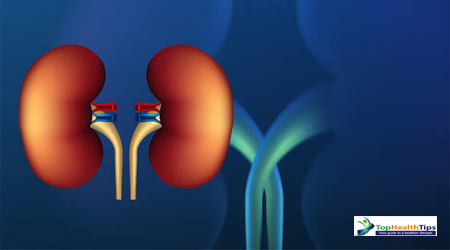Meta Description: Discover the connection between diabetes and kidney disease, why diabetes often leads to kidney complications, and essential ways to protect kidney health.
Understanding the Link Between Diabetes and Kidney Health
Diabetes and kidney disease are tightly interconnected. In fact, diabetes is one of the leading causes of chronic kidney disease (CKD) worldwide. High blood sugar from diabetes can damage the blood vessels in the kidneys, reducing their ability to filter waste from the blood effectively. This section will explore the intricate relationship between these two conditions and the mechanisms through which diabetes can lead to kidney disease.
How High Blood Sugar Damages Kidneys
The kidneys have a network of tiny blood vessels (glomeruli) responsible for filtering waste and excess fluids from the blood. High blood sugar levels over time can lead to several types of damage to these blood vessels:
- Thickening of Blood Vessel Walls: High glucose levels can cause the walls of the glomeruli to thicken, making it harder for blood to flow through.
- Increased Blood Pressure: Diabetes often goes hand in hand with hypertension, which further strains the kidney’s blood vessels.
- Scarring of Kidney Tissue: Prolonged damage can cause scarring, reducing the kidney’s filtering capacity and leading to kidney disease over time.
Stages of Diabetic Kidney Disease
Kidney disease from diabetes often progresses slowly, moving through several stages:
- Microalbuminuria: In the initial stages, small amounts of albumin (a type of protein) begin to leak into the urine, signaling early kidney damage.
- Macroalbuminuria: With more damage, larger amounts of albumin leak into the urine.
- Chronic Kidney Disease: As damage progresses, the kidneys gradually lose function, leading to CKD.
- End-Stage Renal Disease (ESRD): In severe cases, the kidneys fail, requiring dialysis or a kidney transplant.
Prevention and Management Strategies for Diabetic Kidney Disease
Managing Blood Sugar Levels: Keeping blood sugar levels in a target range helps protect the kidneys from damage.
Monitoring Blood Pressure: Hypertension is another significant factor in kidney disease, so maintaining blood pressure within a healthy range is critical for kidney health.
Regular Screening and Tests: Routine urine and blood tests can detect early signs of kidney disease.
Preventive Measures and Lifestyle Modifications for Kidney Health in Diabetics
Taking proactive steps in managing diabetes can significantly reduce the risk of developing kidney disease. Here’s an in-depth look at lifestyle modifications and preventive strategies crucial for protecting kidney health.
1. Dietary Adjustments to Support Kidney Health
Diet plays a central role in managing both diabetes and kidney health. Here’s how diabetics can adjust their diet to minimize kidney stress:
- Limit Protein Intake: While protein is essential, excessive protein can strain the kidneys, especially for individuals with diabetes. Moderation in protein intake helps the kidneys process waste more effectively.
- Reduce Sodium and Potassium Intake: High levels of sodium increase blood pressure, which worsens kidney strain. For diabetics, limiting potassium may also be recommended as kidney disease progresses, since damaged kidneys struggle to filter potassium effectively.
- Control Blood Sugar Spikes with Complex Carbohydrates: Choosing whole grains and low-glycemic foods like leafy greens, berries, and legumes helps maintain stable blood glucose levels, preventing further kidney damage.
- Stay Hydrated: Proper hydration supports kidney function by helping flush out waste. However, for those with advanced kidney disease, fluid intake may need to be carefully monitored.
2. Regular Physical Activity
Exercise is highly beneficial for managing diabetes and preventing complications, including kidney disease. Physical activity improves insulin sensitivity, helps control blood sugar levels, and reduces blood pressure. Here’s how regular exercise impacts kidney health:
- Improves Circulation: Physical activity boosts blood flow, reducing stress on the kidneys and aiding in toxin filtration.
- Manages Weight and Blood Pressure: Exercise is essential for weight management, which directly influences blood pressure—a key factor in preventing kidney disease.
- Recommendations: Aim for at least 150 minutes of moderate aerobic exercise, like brisk walking or cycling, weekly. Strength training exercises are also beneficial for maintaining muscle health and supporting metabolic function.
3. Medication Management and Monitoring
For diabetics, taking prescribed medications and undergoing regular health check-ups is vital to prevent kidney complications. Several medications may benefit kidney health in diabetes patients:
- ACE Inhibitors and ARBs: These medications lower blood pressure and protect kidney function. They are particularly beneficial for diabetics at risk of kidney disease.
- Diabetic Medications with Kidney Protection: Some newer medications for diabetes also offer renal protection benefits. For example, SGLT2 inhibitors help control blood glucose levels and reduce the risk of kidney complications.
- Regular Screening: Routine testing for albumin in urine, serum creatinine, and glomerular filtration rate (GFR) helps detect kidney disease early, allowing for timely interventions.
Recognizing the Symptoms of Diabetic Kidney Disease
Identifying early symptoms of kidney disease can lead to prompt action. Here are some common signs diabetics should watch for:
- Swelling in Hands, Feet, and Ankles: The kidneys play a key role in fluid regulation, so impaired function may lead to swelling.
- Frequent Urination: Increased urination, especially at night, may signal kidney issues.
- Fatigue and Weakness: As the kidneys lose function, toxins accumulate in the blood, leading to persistent fatigue.
- Poor Appetite and Nausea: Kidney disease can reduce appetite and cause digestive discomfort.
- High Blood Pressure: Since the kidneys help regulate blood pressure, dysfunction may lead to elevated levels.
Early intervention upon noticing these symptoms can slow or halt the progression of kidney disease.
Advanced Treatment Options for Diabetic Kidney Disease
For diabetics with advancing kidney disease, medical intervention may be necessary. Here are some advanced treatment options to consider:
Dialysis
Dialysis is often required in advanced stages of kidney disease to filter waste from the blood when the kidneys are no longer able to perform this function effectively. There are two primary types:
- Hemodialysis: This method uses an external machine to filter blood. It typically requires several weekly sessions.
- Peritoneal Dialysis: This approach uses the lining of the abdomen to filter blood, allowing patients to perform dialysis at home.
Kidney Transplant
A kidney transplant may be an option for diabetics in end-stage renal disease (ESRD). However, this treatment is complex and requires a compatible donor, as well as long-term medication to prevent organ rejection. A successful transplant can greatly improve the quality of life, but it may not cure diabetes, so careful management is still essential.
Emerging Therapies
Ongoing research is exploring new treatments for diabetic kidney disease. Advances in regenerative medicine and gene therapy offer potential future solutions. Here are a few emerging areas of research:
- Stem Cell Therapy: Scientists are exploring the potential of stem cells to regenerate damaged kidney tissue, though more research is needed before this becomes widely available.
- Gene Therapy: Modifying specific genes to enhance kidney cell resilience and improve repair mechanisms could become an option for those with diabetic kidney disease.
- Biomarker-Driven Treatment: New biomarkers may help tailor treatments to individual patients, allowing for more personalized and effective kidney disease management.
Frequently Asked Questions About Diabetes and Kidney Disease
How does diabetes lead to kidney disease?
Diabetes can damage the kidneys over time by causing high blood sugar levels, which harm the blood vessels in the kidneys, reducing their ability to filter waste.
What are the first signs of diabetic kidney disease?
Early signs include protein in the urine, frequent urination, fatigue, swelling, and high blood pressure.
Can kidney disease from diabetes be reversed?
While damage is often irreversible, early detection and strict management of blood sugar and blood pressure can slow or halt progression.
How can I protect my kidneys if I have diabetes?
Managing blood sugar levels, controlling blood pressure, eating a kidney-friendly diet, staying active, and regular check-ups are key for kidney health.
What is the best diet for diabetics to prevent kidney disease?
A balanced diet low in protein, sodium, and potassium and rich in complex carbohydrates can help support kidney health and manage diabetes.
Is dialysis always necessary for diabetic kidney disease?
Dialysis is generally reserved for severe kidney damage. Early interventions and proper management can delay or prevent the need for dialysis.
Conclusion:
The link between diabetes and kidney disease is a significant concern, but proactive management can make a remarkable difference. With careful blood sugar control, a kidney-friendly lifestyle, and regular medical screenings, people with diabetes can reduce their risk of developing kidney disease. As research continues to advance, new treatments and preventive strategies offer hope for even better outcomes in the future. Taking the necessary steps now can help ensure a healthier life with diabetes and protect kidney health for years to come.
For additional information on kidney health and diabetes management, visit the National Kidney Foundation or the American Diabetes Association.




